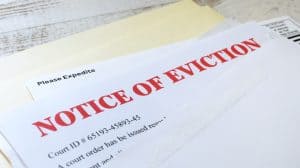Evicting a tenant is one of the most serious actions a landlord can take—and in Florida, it’s a process that must be handled with precision and compliance. Whether you’re dealing with non-payment of rent, lease violations, or holdover tenants, Florida law outlines a strict set of steps landlords must follow to lawfully regain possession of their property. Failing to follow these procedures could delay the eviction or even result in legal liability.
Understand the Reasons for Eviction
In Florida, landlords may legally evict tenants for various reasons, including:
- Non-paying rent
- Breach of lease conditions (e.g., unauthorized occupants or pets, illegal activity)
- End of lease term when the tenant refuses to vacate
- Failure to maintain the property or other breaches of responsibility under the lease
It’s important to document all lease violations in detail. If the issue escalates to court, you will need evidence.
Serve the Proper Notice
Under Florida law, landlords must offer tenants written notice prior to initiating an eviction lawsuit. The type of notice depends on the reason for the eviction:
- 3-Day Notice to Pay Rent or Vacate: This is used when the tenant fails to pay rent. It gives the tenant three business days to pay in full or move out.
- 7-Day Notice to Cure or Vacate: This is used for curable lease violations (e.g., keeping an unauthorized pet). The tenant has seven days to fix the issue or leave.
- 7-Day Unconditional Quit Notice: This notice is used for serious or repeated lease violations. It gives the tenant seven days to leave with no opportunity to cure.
Notices must be appropriately served by hand delivery, posting on the door, or certified mail. Incorrect service can render the notice invalid.
File an Eviction Lawsuit (Unlawful Detainer)
If the tenant fails to comply with the notice, the next step is to file a Complaint for Eviction in the appropriate Florida county court. The complaint must be accompanied by:
- A copy of the lease
- The eviction notice
- Proof of service
The tenant will receive a summons and has five business days to respond. If they do not respond, the landlord may request a default judgment.
Court Hearing and Judgment
If the tenant disputes the eviction, the court will arrange a hearing. Both sides can present evidence, such as lease agreements, photographs, correspondence, and witness testimony.
If the court rules in favor of the landlord, it will issue a Final Judgment of Eviction.
Writ of Possession and Removal
After judgment, the landlord must request a Writ of Possession, which is delivered by the sheriff. The tenant is typically given 24 hours to vacate. If they do not leave, the sheriff may forcibly remove them.
What Landlords Should Never Do
Even in challenging circumstances, landlords should refrain from “self-help” evictions, as these are prohibited in Florida. Such actions include:
- Shutting off utilities
- Changing locks
- Removing tenant property
- Threatening or harassing the tenant
Violating these rules could result in the landlord being sued for damages, court costs, and attorney’s fees.
Working With Legal Counsel
Evictions can quickly become complicated, especially when tenants fight back or raise legal defenses. An experienced real estate attorney can help ensure that your notices are appropriately drafted and served, your filings meet Florida’s legal requirements, and your interests are protected in court.
Need Help With an Eviction? Contact St. Johns Law Group Today.
If you’re dealing with a challenging tenant, seek help instead of handling it alone. Contact St. Johns Law Group today to schedule a consultation and learn how we can guide you through the legal eviction process from start to finish.

